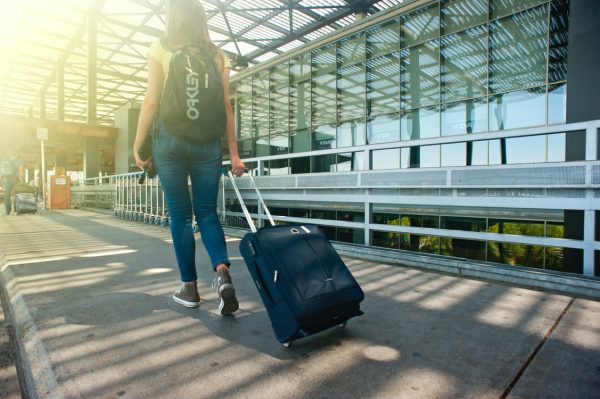Ready to move to Australia or spend a holiday back in France? While dental health may not be the first thing on your mind when travelling, a single trip can sometimes make your oral hygiene fall to the wayside. So, today, we’ll talk about how travel can affect your oral health. And we’ll also share what you can do to keep your teeth healthy while you’re off to have the best time in your life.
Travel can disrupt oral hygiene routines.
Daily routines at home make it easy to stick to a set schedule of brushing and flossing your teeth. But when travelling across the globe, you’re likely to go through time zone changes. These can make it tougher for you to recognise exactly when you last flossed your teeth. The stopovers on your flight might affect your routine, too.
When going on a trip, make sure to pack a hygiene kit in your carry-on bag. It should include a travel toothbrush, toothpaste and dental floss. Then, set alarms every 10 hours to remind you to brush and floss or brush your teeth after each meal—no matter where you are on your trip. Even if you have to do it in a cramped plane bathroom, do it, as sticking to your dental care routine matters a lot for your health.
Travel can change your diet.
A trip abroad is usually a time for fun, celebration and indulgence. That could mean eating lots of dinners in restaurants or exploring street food and munching on every sweet snack you see while walking back to your hotel room or vacation house. That’s not to mention you’ll probably drink a lot, too! While there’s nothing wrong with enjoying food and drinks while on a trip, remember that extra sugar and acidic ingredients can increase your risk of tooth decay & gum disease.
You don’t have to be strict about your diet when travelling. However, consider choosing a healthier snack from time to time. Or, if you do indulge in food & drinks, be sure to rinse your mouth with water immediately after eating or drinking coffee or wine. And do the same even if you’re travelling for work, as it tends to involve more room service and catered meals that you would usually consume back home.
Travel can make dental emergencies more difficult.
Dealing with a knocked-out tooth or severe toothache is inconvenient even when your go-to dentist is nearby. But a dental emergency in an unfamiliar place can even be more difficult. So before you go on a trip, don’t forget to create a list of dental offices and hospitals in your destination. Also, find out whether your insurance covers emergency dental treatment abroad, so you won’t be surprised if you need to pay out of pocket.
Another way to prevent dental emergencies is to maintain regular dental checkups. Your dentist may catch issues before they go serious and turn into a dental emergency abroad. The same goes for teeth whitening. If you are going on a business trip and need to present in front of a crowd or meet many people at a conference, you should get professional teeth whitening in Australia before your flight. That way, you can avoid the unexpected costs of a last-minute treatment at your destination. Going abroad and planning to play football or participate in any sports while there? Ask your dentist about getting a custom-fitted mouthguard.
Travel can cause dehydration.
How does travel affect your oral health? We’ve got one more on our list, and it’s dehydration. Dehydration is common during long flights. Water isn’t only good for your physical health but also your oral health as it helps wash away food particles. As such, a dry mouth can be a breeding ground for bacteria. To combat dehydration, grab a massive water bottle before your flight and keep it full before boarding. You can also bring a pack of sugar-free gum to help stimulate saliva production. Also, avoid drinking alcohol before or during your long flight, as it can dehydrate you more.


0